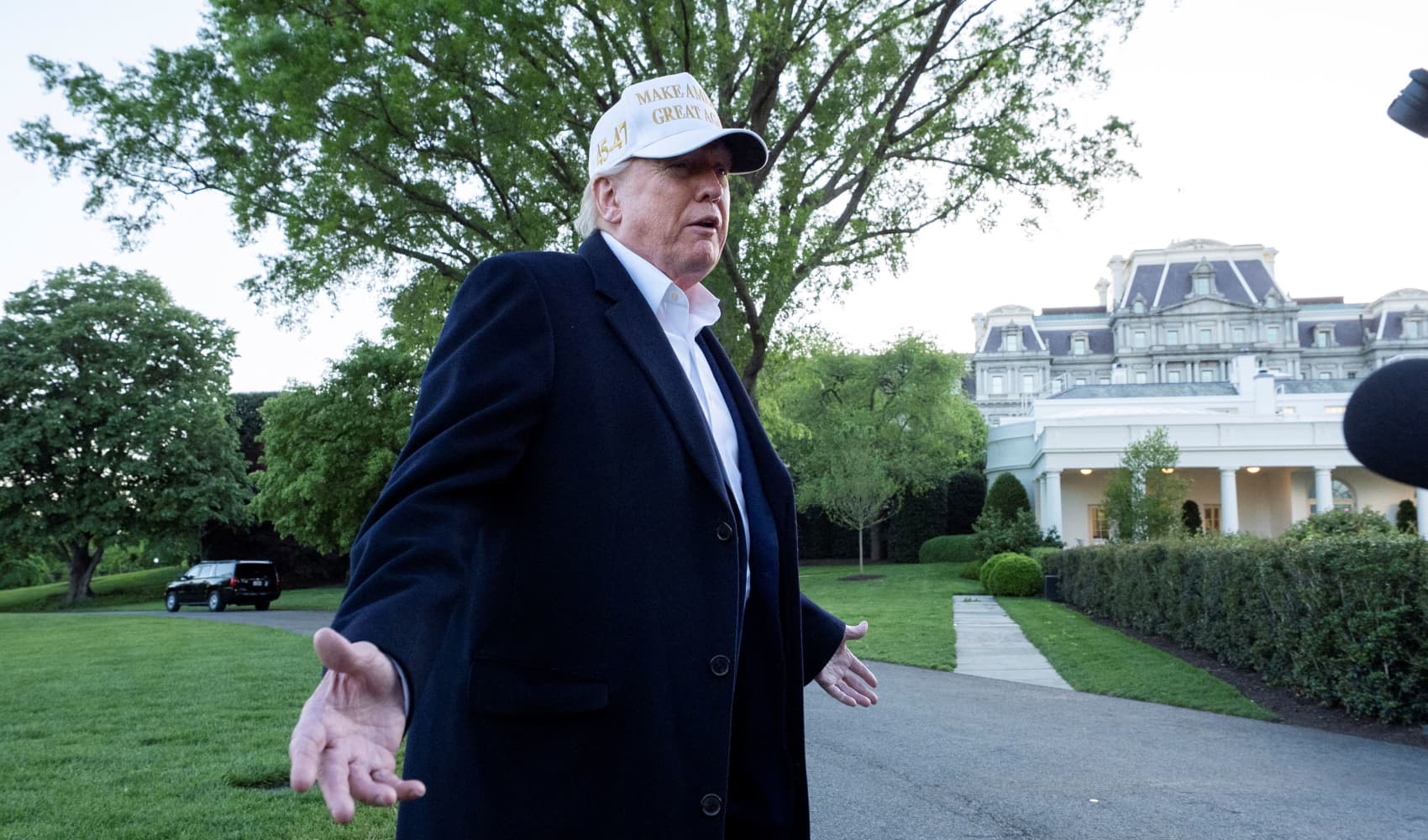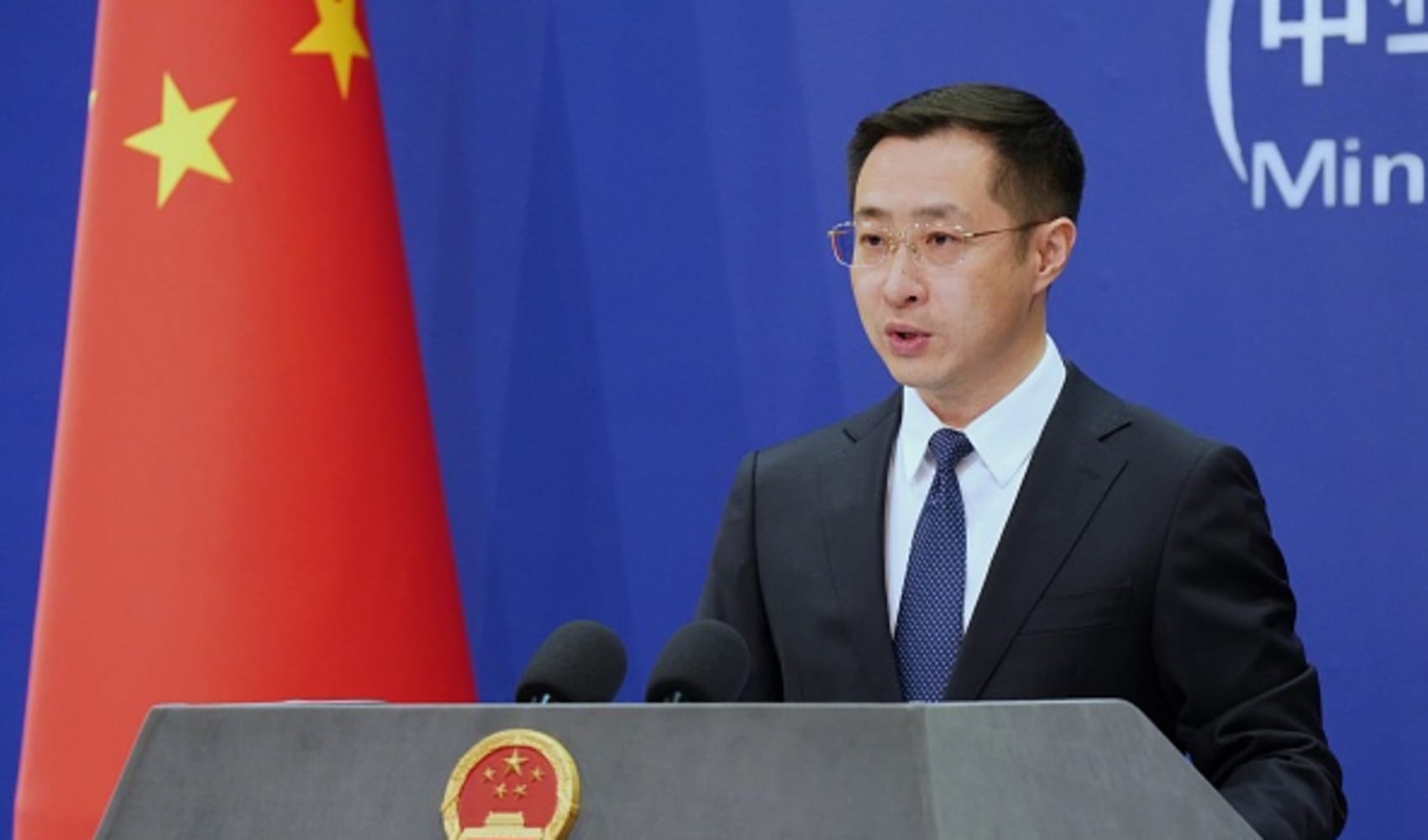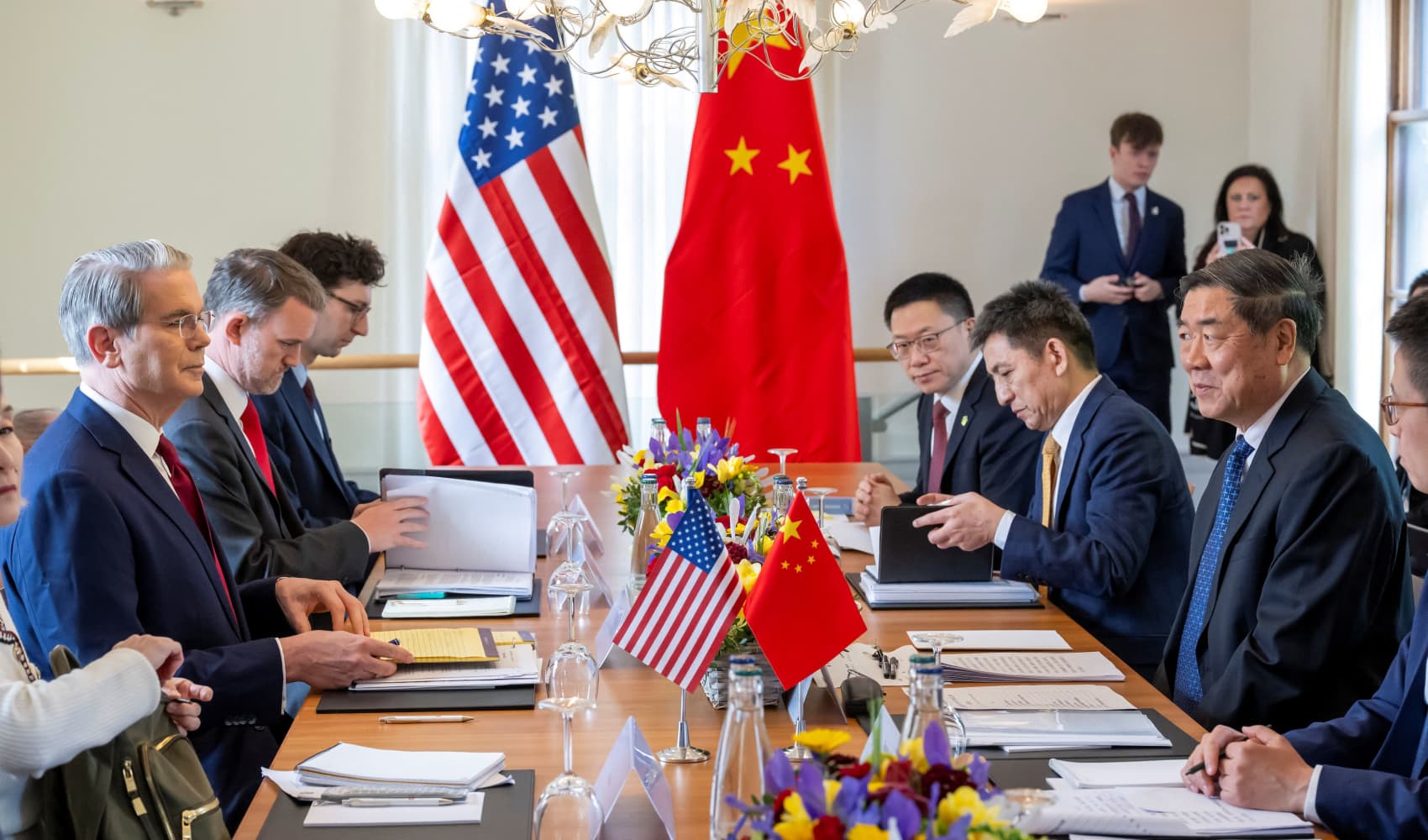China Trade War: No Tariff Talks with Trump, Says Beijing
China Trade War Standoff: No Tariff Talks with Trump, Says Beijing
Introduction: Is the Trade War Thawing, or Just Hot Air?
The global economy holds its breath. Headlines scream of potential breakthroughs in the U.S.-China trade war, only to be met with cold water from Beijing. Are we on the brink of a resolution, or are these just political posturings? The latest twist? China is vehemently denying any ongoing tariff negotiations with the U.S., despite repeated claims to the contrary from President Donald Trump and his administration. So, what's really going on? Let's dive in and untangle this web of diplomatic denials and economic uncertainties.
China's Firm Stance: "No Talks on Tariffs"
China's Foreign Ministry spokesman, Guo Jiakun, minced no words at a recent press conference. "Let me make it clear one more time that China and the U.S. are not engaged in any consultation or negotiation on tariffs," he stated emphatically. This isn't the first time Beijing has issued such a denial, but the repetition underscores the apparent disconnect between the two economic superpowers.
Trump's Claims: Are They Accurate?
President Trump has repeatedly suggested that trade negotiations are actively underway. He's even alluded to personal communications with President Xi Jinping. But Guo Jiakun seemed to dismiss these claims, adding another layer of complexity to the situation. Are Trump's statements a strategic tactic, or is there a genuine miscommunication happening at the highest levels? It's hard to tell from this side of the globe.
The Xi Jinping Phone Call: Did It Happen?
Adding fuel to the fire, Guo appeared to reject Trump's claim in a recent *Time* interview that Xi Jinping had contacted him. This raises serious questions about the accuracy of information being disseminated by the U.S. administration. If basic facts are disputed, how can we trust the bigger picture being painted about the trade relationship?
The Economic Impact: Who's Feeling the Pinch?
Regardless of whether official talks are happening, the trade war's impact is being felt globally. Business owners and analysts warn that the tariffs are already driving prices higher, potentially leading to product shortages and even store closures. It's not just big corporations that are affected; small businesses and consumers are feeling the squeeze too. Is this a short-term pain for long-term gain, or a recipe for economic stagnation?
Business Concerns: Product Shortages Looming?
The prospect of product shortages is a major concern for businesses. As tariffs increase the cost of goods, companies may struggle to source materials or finished products at competitive prices. This could lead to empty shelves and frustrated customers. It's like a chain reaction, with tariffs acting as the initial trigger.
Retail Apocalypse 2.0: Are Store Closures Inevitable?
The retail sector has already been facing challenges due to the rise of e-commerce. The trade war could exacerbate these problems, potentially leading to more store closures. Higher prices and reduced consumer spending could push already struggling retailers over the edge. We might be witnessing the beginnings of "Retail Apocalypse 2.0."
Consumer Impact: Paying More for Everyday Goods
Ultimately, consumers bear the brunt of the trade war. Tariffs are essentially taxes on imported goods, and these taxes are often passed on to consumers in the form of higher prices. From clothing to electronics, everyday items are becoming more expensive. Are you noticing a difference in your grocery bill yet?
The Bigger Picture: Geopolitical Tensions
The trade war isn't just about tariffs; it's also about geopolitical power and influence. The U.S. and China are vying for global dominance, and trade is a key battleground. This conflict has implications for international relations and the future of the world order.
The Role of Politics: Domestic Agendas at Play
Domestic politics on both sides of the Pacific also play a significant role. Trump's trade policies are aimed at protecting American industries and jobs, while China is determined to assert its position as a global economic power. These internal pressures can make finding common ground even more challenging.
Understanding China's Perspective: A Matter of Pride
It's crucial to understand China's perspective. For China, any perceived concession to the U.S. could be seen as a sign of weakness. This is especially true under President Xi Jinping, who has emphasized national pride and strength. Therefore, Beijing may be reluctant to engage in negotiations that appear to favor the U.S.
The Art of the Deal: Is Trump Using Negotiation Tactics?
Trump is known for his aggressive negotiation tactics. Perhaps his claims of ongoing talks are a way to put pressure on China and create a sense of urgency. It's like a high-stakes poker game, where bluffs and feints are common.
Alternative Explanations: Miscommunication or Misinformation?
Could there be a simpler explanation? Perhaps there is a genuine miscommunication between the two sides. Or perhaps one side is intentionally spreading misinformation to gain a strategic advantage. In the world of international diplomacy, anything is possible.
The Future: Where Do We Go From Here?
Predicting the future of the U.S.-China trade war is a fool's errand. However, it's clear that the current situation is unsustainable. Eventually, both sides will need to find a way to de-escalate tensions and reach a compromise. The question is, how and when will that happen?
Possible Scenarios: What Lies Ahead?
Here are a few potential scenarios:
- A breakthrough agreement: The U.S. and China reach a comprehensive deal that addresses key issues such as intellectual property theft, trade imbalances, and market access.
- A limited truce: The two sides agree to a temporary ceasefire, rolling back some tariffs and resuming negotiations on a broader agreement.
- Escalation: The trade war intensifies, with both sides imposing even more tariffs and restrictions.
- A protracted stalemate: The trade war drags on for years, with no clear resolution in sight.
The Need for Transparency: Shining a Light on Trade Talks
Regardless of whether formal tariff talks are underway, increased transparency is crucial. Both governments owe it to their citizens and the global community to provide clear and accurate information about the state of their trade relationship. Opacity only breeds mistrust and uncertainty.
Conclusion: Navigating the Murky Waters of Trade
The U.S.-China trade war remains a complex and volatile situation. China's denial of ongoing tariff talks, coupled with President Trump's claims to the contrary, creates a confusing picture. The economic impact is already being felt by businesses and consumers, and the future remains uncertain. Whether it's a strategic negotiation tactic, a genuine miscommunication, or a combination of both, one thing is clear: the world is watching, hoping for a resolution that benefits all parties involved. The key takeaway here is to remain vigilant and adaptable as the trade landscape continues to shift.
Frequently Asked Questions (FAQ)
1. What exactly is a tariff, and how does it work?
A tariff is essentially a tax imposed on imported goods. When a country imports goods, the government levies a tariff, increasing the cost of those goods. This makes imported goods more expensive for domestic consumers and businesses, potentially favoring domestically produced goods. Think of it like a toll you pay to cross a border with your merchandise.
2. Why is China denying that trade talks are happening?
There could be several reasons. One is that China doesn't want to appear weak by seeming to negotiate under pressure from the U.S. Another is that the talks, if they exist, may not be at a stage where China wants to publicly acknowledge them. It might be a strategic move to maintain leverage in the negotiation process, like keeping a poker face in a high-stakes game.
3. How will the trade war affect my everyday life as a consumer?
You'll likely see higher prices on a range of goods, from electronics to clothing. Companies that import goods from China will likely pass on the cost of tariffs to consumers. This could lead to reduced purchasing power and make it harder to afford certain items. It's like inflation, but specifically tied to imported products.
4. What can businesses do to mitigate the impact of the trade war?
Businesses can explore several strategies, including diversifying their supply chains to reduce reliance on China, negotiating with suppliers to share the cost of tariffs, and finding alternative sources for materials. They can also invest in automation to improve efficiency and reduce labor costs. It's all about adapting to the new reality and finding creative solutions.
5. Is there any end in sight to the U.S.-China trade war?
That's the million-dollar question! It's difficult to predict. The situation is complex and depends on political will, economic conditions, and ongoing negotiations. While there have been periods of optimism, tensions remain high. It's likely that the trade relationship between the U.S. and China will continue to be a source of uncertainty for the foreseeable future.


